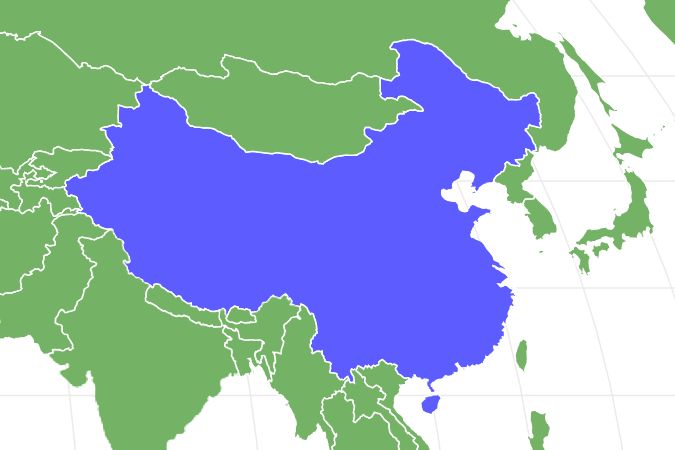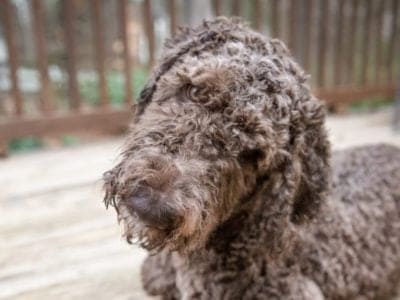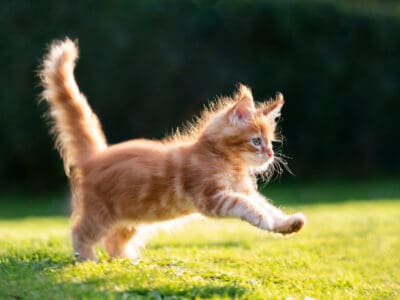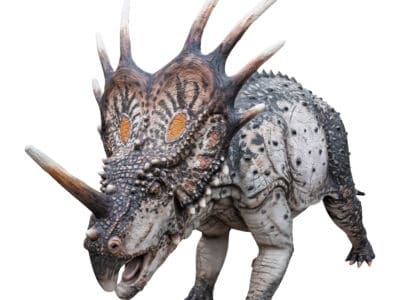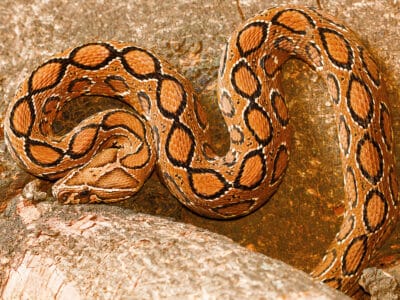Pekingese
.jumbotron {
background-image: url(“https://a-z-animals.com/media/pekingese-4-400×300.jpg”);
}
}
@media only screen and (min-width: 641px) and (max-width: 920px) {
.jumbotron {
background-image: url(“https://a-z-animals.com/media/pekingese-4-470×370.jpg”);
}
}
@media only screen and (min-width: 921px) {
.jumbotron {
background-image: url(“https://a-z-animals.com/media/pekingese-4.jpg”);
}
}
Pekingese
Canis lupus
Thought to be over 2,000 years old!
Pekingese Scientific Classification
- Kingdom
- Animalia
- Phylum
- Chordata
- Class
- Mammalia
- Order
- Carnivora
- Family
- Canidae
- Genus
- Canis
- Scientific Name
- Canis lupus
Read our Complete Guide to Classification of Animals.
Pekingese Conservation Status
Pekingese Facts
.checked {
color: yellow;
}
Pekingese as a Pet:
- General Health
- Energy Level
- Shedability
- Trainability
- Intelligence
- Tendency to Chew
- Size
- Family and kid friendliness
- Yappiness / Barking
- High
- Separation Anxiety
- Low
- Preferred Temperature
- Average climate
- Exercise Needs
- Low
- Friendly With Other Dogs
- Moderate
- Pure bred cost to own
- $750 to $3,500
- Dog group
- Toy
- Male weight
- 6-12 lbs
- Female weight
- 6-12 lbs
This post may contain affiliate links to our partners like Chewy, Amazon, and others. Purchasing through these helps us further the A-Z Animals mission to educate about the world’s species..

Spiders that fly! Fish that walk! And 1000+ more incredible animals. Discover them all for FREE
.photo-gallery {
–margin: 0px auto 0px;
–padding: 0px 0px 0px 0px;
}
.gallery-link {
background-image: url(“https://a-z-animals.com/media/pekingese-4.jpg”);
background-repeat: no-repeat;
background-size: cover;
background-position: center;
height: 500px;
justify-content: center;
text-align: center;
align-items: center;
display: flex;
border: 2px solid #000;
}
.gallery-link img {
height: 50%;
}
@media only screen and (max-width: 768px) {
.gallery-link {
height: 300px !important;
}
}
View all of the Pekingese images!
Pekingese, also known as a “lion dog,” are toy dogs and are fairly compact in their build.
They usually weigh up to 14 pounds and have a long fur coat all over their bodies. Their ears are large and rounder (in comparison to their bodies), and their eyes are dark and sparkly.
See all of our expert product reviews.
They are particularly known to create a bond with people that they like. However, they are also very well known for being independent and alert and often make good watchdogs.
button.pulse {
transform: scale(1); animation: pulse 2s infinite;
box-shadow: 0 0 0 0 rgba(11, 247, 25, 1);
}
@keyframes pulse {
0% { transform: scale(0.90); box-shadow: 0 0 0 0 rgba(11, 247, 25, 0.5); }
60% { transform: scale(1); box-shadow: 0 0 0 15px rgba(11, 247, 25, 0); }
100% { transform: scale(0.90); box-shadow: 0 0 0 0 rgba(11, 247, 25, 0); }
}
Pekingese were originally found as companion dogs to an ancient Chinese family and are considered sacred in China. Legend also says that they were originally lion-sized but were reduced to their now-known size by Buddha which is also why it is called the lion dog. They are categorized into sleeve Pekingese and mini Pekingese. Sleeve Pekingese dogs got their name as it was said that the members of the ancient Chinese Imperial family carried them in the sleeves of their robes.
Pros and Cons of Owning a Pekingese Dog
| Pros! | Cons! |
|---|---|
| Friendly and calm These dogs are known to be friendly and are usually very calm. In addition to that, they are known to be loyal creatures too. |
Vulnerable and sensitive physical features These dogs are tiny and fragile and have very sensitive and vulnerable bodies. Therefore, it is always a nice idea to keep them away from situations that can do them more harm than good. Therefore, they should also be handled very carefully around younger children. |
| Compatible with family They are known to be great family dogs and are very affectionate towards all the members of the family. However, they particularly choose a few people that eventually become their absolute favorite. |
Prone to breathing problems A major health concern for this dog is its respiratory health. If it exercises even slightly more than it should, your dog could end in respiratory distress. |
| Very positive and energetic Another good thing about these dogs is that they carry a very positive vibe and are very energetic – which eventually brightens up your home’s atmosphere. |
High maintenance These dogs require a high level of grooming and maintenance. They shed a lot and their loose fur needs to be regularly removed for them to be clean. |

T.Den_Team/Shutterstock.com
Pekingese Size and Weight
Pekingese are small toy dogs that are covered in fur that drops down the longest from their heads. Male and female Pekingese weigh around 6-12 lbs. Meanwhile, both males and females are approximately 6 to 9 inches in height.
| Male | Female | |
|---|---|---|
| Height | 6-9 inches Tall | 6-9 inches Tall |
| Weight | 6 to 12 lbs., fully grown | 6 to 12 lbs., fully grown |
Pekingese Common Health Issues
Pekingese dogs are prone to several health issues. Intervertebral disc disease, for example, occurs when the discs in the spine begin to break down, putting the dog in great pain along their back and neck. The legs and arms may also be affected.
Health and Entertainment for your Pekingese
See all of our expert product reviews.
Brachycephalic airway syndrome is another common health issue, due to the naturally flat face of the Pekingese. If breathing becomes difficult, a veterinarian may be able to perform surgery to improve airflow.
Pekingese dogs are also prone to heart murmurs and syringomyelia. While a heart murmur can be a symptom of a separate problem inside the heart, syringomyelia is a broad term that simply means that the spine has a cyst. However, this condition is far from benign; if left untreated, the dog’s spinal cord can deteriorate and lead to paralysis, muscle stiffness, and weakness.
The main health issues in these dogs are:
- Eye diseases
- Heart murmur
- Intervertebral disc disease
- Brachycephalic airway syndrome
- Syringomyelia
Pekingese Temperament and Behavior
Pekingese dogs are loyal and have very friendly behavior within their human families. They are known to be fearless and independent despite being tiny in size. They love their owners’ laps and it is said that they are also used as companion pets which eventually serve as status symbols.
These dogs are considered to be one of the most stubborn and are awfully hard to train. They love a few favorite humans in the family. However, their affection is usually with all the members.
These dogs are also great with children. However, it is not recommended to keep them if you have young children at home as these dogs are very fragile and vulnerable.
These dogs are not very fit for busy people. They are ideal for retired people usually. These dogs also require a lot of maintenance as their thick fur needs to be groomed and untangled very regularly. Being aggressive is also a rare personality trait of Pekingese dogs.
How to Take Care of a Pekingese Dog
Taking care of a Pekingese dog is usually a task as these tiny creatures require a lot of maintenance and grooming, especially as a puppy. Therefore, it is particularly important to consider several factors if you are thinking of adopting a Pekingese dog as your pet. Use the tips below to create a comfortable and safe space for them.
The Best Dog Food for Pekingese Dogs
Pekingese dogs require only balanced and small portions of food. However, they might behave like they need a lot more – which could eventually make them sick. Usually, their diet includes protein-rich items like pork, fish, and chicken. You can combine this with soy items, rice as well as green vegetables to give them a comprehensive diet.
At regular vet appointments, keep an eye on signs of a heart murmur. Also look into the link between dog food with legumes and heart failure in dogs, because you may prefer a legume-free dog food.
A Pekingese puppy also has a similar diet except for the fact that it should be fed more often in comparison to the adult ones since they have smaller stomachs and can only take very small quantities at a time which may or may not be very sufficient for their nutrition needs.
A-Z Animals says the best dog food for Pekingese dogs is Hill’s Science Diet Dry Dog Food, Adult, Small Paws for Small Breed Dogs.
With none of the problem legumes like peas and lentils, this vet-approved formula has taurine for a trusty heart muscle. It also contains beta-carotene and vitamin A for the eyes, plus enough calcium to help build and maintain sturdy bones.
Follow the link below to find Hill’s Science Small Paws dog food on amazon.
- An adult dog food made with highly digestible ingredients that are easy on your small dog’s stomach
- Nourishing omega 6 fatty acids and vitamin E help promote healthy skin and a shiny coat
- Provides high quality protein to maintain lean muscle in small breed dogs. Calorie content: 3741 kcal/kg (371 kcal/cup)
- Uses an antioxidant blend specifically for lifelong immune support in toy and miniature dogs
- Made with natural ingredients
Best Pekingese Insurance
Since these dogs suffer from a host of health problems, it would only be safe for you as an owner to get your dog appropriate insurance that would have you covered in times of need. Find pet insurance that covers regular visits, as well as emergency coverage. Also, many veterinarians offer payment plans or special coverage packages at their office, so it is best to speak with a local vet to learn more.
Pekingese Maintenance and Grooming
Pekingese dogs are generally high maintenance. Their very thick coat requires proper grooming. Owners will have to regularly brush the coat of their Pekingese dog daily, though they should not be surprised by the amount of shedding. Brushing will remove this extra fur, reducing the tangles for a smooth and shiny coat.
Pekingese Training
These dogs are known to be very stubborn and are usually difficult to train. You will need a lot of effort and patience to train your Pekingese dog. It would usually take six months to a year for your dog to start following the training protocols.
Pekingese Exercise
Pekingese dogs require a minimum of 30 minutes of exercise every day, which is much less than more active and larger dogs. However, exercise should not be overdone to prevent breathing issues. During breaks, a few shorter walks would be great for your dogs. They won’t need much space to run around in a yard, making them an ideal pet for owners in apartments or with limited yard space.
Pekingese Puppies
The care needed for Pekingese puppies is similar to that of full-grown ones. However, they require a little extra care. You would also have to feed them more often because their stomachs are small and usually can’t hold much food at a particular time. Always provide adequate water to ensure that they are hydrated.

Sergius4/Shutterstock.com
Pekingese Dogs and Children
Pekingese dogs are great with children. They are considered to be loyal family dogs and are especially affectionate towards children. However, these dogs are sensitive, fragile, and vulnerable. Therefore, they should not be kept with infants.
Dogs Similar to the Pekingese
Some dogs are similar to the Pekingese dogs. Some of them are:
- Japanese Chin – Much like the Pekingese dogs, this one is also known to be a loyal companion dog. These dogs are also alert and independent.
- Maltese – These dogs are also covered in thick fur and are very friendly, However, they can also turn out to be deceiving.
- Affenpinscher – This dog is intelligent, but also prone to health risks. Bred with toy dogs like the Brussels Griffon, the majority of their health risks are self-imposed, due to their high energy and innate curiosity. They share the same loving nature for their family as the Pekingese.
Famous Pekingese Dogs
Due to their beautiful fur and small stature, it should come as no surprise that the Pekingese dog has found a place in the hearts of many famous personalities. When Shirley Temple was in the 1936 film “Stowaway,” she was gifted her character’s Pekingese dog, naming it “Ching-Ching” (formerly “Mr. Woo”).
Jennifer Gray and Elizabeth Taylor also have owned Pekingese dogs. The breed has also served as an inspiration for an animated dog in a Walt Disney series “Pluto”
As fancy as these dogs may be, they are also resilient. It is said that this breed was one of the dogs that survived the tragic Titanic sinking in 1912.
Popular Names for Pekingese Dogs
Here are some of the popular names for this dog:
- Fifi
- August
- Milo
- Chapa
- Jerry
Last update on 2022-07-06 / Affiliate links / Images from Amazon Product Advertising API
View all 117 animals that start with P
Pekingese FAQs (Frequently Asked Questions)
What is a Pekingese?
Pekinese is a tiny toy dog that is known to be very loyal and friendly. They are famous for being family companion dogs.
How long do Pekingese live?
These dogs usually live for 13 to 15 years.
What were Pekingese bred for?
These dogs were originally bred to be companion dogs for the ancient Chinese imperial family.
How big do Pekingese get?
They are usually 6-9 inches in size.
Are Pekingese dogs easy to train?
No, these are known to be stubborn dogs and are usually exceedingly difficult to train.
How much does a Pekingese dog cost to own?
As a purebred, Pekingese dogs are typically sold for as little as $750 or as high as $3,500. For care, the annual cost ranges from $420 to $780.
Is a Pekingese dog good with kids?
These dogs are great with children. However, due to their fragile nature, they should be kept away from infants.
Are Pekingese herbivores, carnivores, or omnivores?
Pekingese are Omnivores, meaning they eat both plants and other animals.
What Kingdom do Pekingese belong to?
Pekingese belong to the Kingdom Animalia.
What class do Pekingese belong to?
Pekingese belong to the class Mammalia.
What phylum to Pekingese belong to?
Pekingese belong to the phylum Chordata.
What family do Pekingese belong to?
Pekingese belong to the family Canidae.
What order do Pekingese belong to?
Pekingese belong to the order Carnivora.
What type of covering do Pekingese have?
Pekingese are covered in Hair.
What genus do Pekingese belong to?
Pekingese belong to the genus Canis.
What is an interesting fact about Pekingese?
Pekingese are thought to be over 2,000 years old!
What is the scientific name for the Pekingese?
The scientific name for the Pekingese is Canis lupus.
What are the differences between Pekingese and Shih Tzus?
The main differences between Pekingese and Shih Tzus are body shape, face shape, coat, and temperament.
Sources
- David Burnie, Dorling Kindersley (2011) Animal, The Definitive Visual Guide To The World’s Wildlife
- Tom Jackson, Lorenz Books (2007) The World Encyclopedia Of Animals
- David Burnie, Kingfisher (2011) The Kingfisher Animal Encyclopedia
- David Burnie, Dorling Kindersley (2008) Illustrated Encyclopedia Of Animals
- Dorling Kindersley (2006) Dorling Kindersley Encyclopedia Of Animals
- American kennel Club, Available here: https://www.akc.org/expert-advice/lifestyle/10-facts-about-pekingese-dogs/
- Dog Breeds 911, Available here: https://www.dogbreeds911.com/small-dog-breeds-pekingese.html#pros-cons
- PDSA, Available here: https://www.pdsa.org.uk/taking-care-of-your-pet/looking-after-your-pet/puppies-dogs/small-dogs/pekingese

